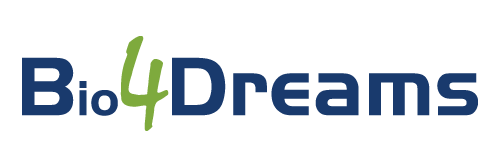HiWeiss: eco-friendly vegetable protein isolates and texturized soy
A difficult present to digest
According to a study published in March 2021 in Nature Food, the food industry is responsible for over a third of greenhouse gas emissions.1 The main culprits are intensive livestock farming, particularly cattle farming: producing one kilogram of meat results in the emission of 60 kilograms of CO2.2
Reducing the number of farms seems like the obvious choice, but it’s hardly feasible: beyond direct meat consumption, animal proteins are used as supplements, thickeners, and emulsifiers in numerous industrial processes, and according to estimates by the United Nations Food and Agriculture Organization (FAO), global food production needs to increase by 50% by 2050 to support population growth.3
Vegetable proteins: a new resource
An alternative can be the use of vegetable proteins instead of animal proteins.
Take soy, for example. Its seeds are composed of about half proteins, very similar to animal proteins in characteristics and functional properties—key chemical-physical aspects in the preparation and conservation of food at an industrial level.
The production of these proteins has a lower environmental impact compared to those of animal origin, especially if conducted through conservative farming practices, a cultivation system promoted by the FAO that allows for reduced CO2 production and other climate-altering gases.
However, today, the processes to obtain vegetable protein isolates “dirty” the functional qualities of the proteins themselves; consequently, further industrial processing is needed to “clean” them, which increases costs and energy consumption. At the same time, the raw materials from which they are extracted—such as soy—are not obtained through conservative agriculture. It’s back to square one.
HiWeiss’s innovation
HiWeiss, a startup founded in 2018, has developed an innovative process capable of isolating plant proteins without altering them, preserving their nutritional values and functional properties. The product obtained is a pure and standardized vegetable protein source, ready for use in the food industry.
HiWeiss’s process, in addition to soybean seeds, is also applicable to pea and lentil seeds, corn germ, and alfalfa.
Moreover, from the plant protein isolates, the startup has also developed an innovative moist texturized soy. This is an aggregate that gives “form” to the proteins, making them directly usable as meat substitutes in food preparation, with a low impact on production costs.
A sustainable philosophy in practice
For HiWeiss, conservative agriculture is not just a principle to claim, but an integral part of its philosophy, which it practices. Indeed, for years the startup has used non-GMO raw materials grown in conservative agriculture, all transparently and traceably.
HiWeiss aims to have zero impact on the environment, or even a positive one. In this sense, the startup positions itself as a potential contact point for companies interested in developing supply chains for sustainable plant sources.
HiWeiss Today
In December 2020, HiWeiss filed an international patent application for its innovative process of extraction and isolation of plant proteins at the World Intellectual Property Organization (WIPO).
By the end of 2022, the industrial site will be operational, where HiWeiss plant protein isolates and concentrates will be produced for the market.
HiWeiss, along with the FAO and 26 other partners, is part of the European Horizon 2020 project RADIANT (ReAlising DynamIc vAlue chaiNs for underuTilised crops), which aims to develop solutions and tools to promote currently underused crops through dynamic agricultural production and processing chains.
From Italy to the world, high-quality plant protein isolates, produced following the models of the circular bioeconomy and conservative agriculture.
Michael Atzwanger, Legal Representative, HiWeiss
📗 Learn more about HiWeiss and other entities in our portfolio.
Bibliography
- Food systems account for more than one third of global greenhouse gas emissions. 2021, FAO.org
- Interested, indifferent or active information avoiders of carbon labels: Cognitive dissonance and ascription of responsibility as motivating factors. 2021, Food Policy.
- The State of the World’s Land and Water Resources for Food and Agriculture – Systems at breaking point (SOLAW 2021). 2021, FAO.

